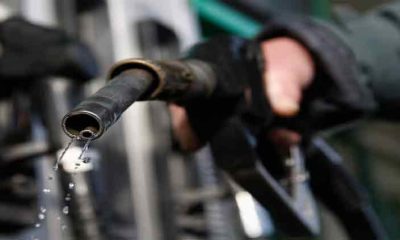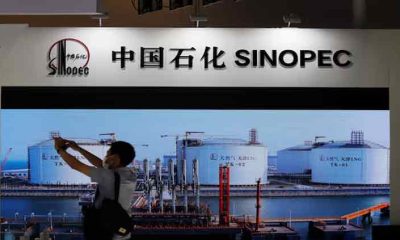QatarEnergy expects to agree new long-term liquefied natural gas (LNG) supply deals in Asia and Europe, with several “imminent”, its chief executive told Reuters.
Qatar is among the world’s top exporters of LNG, competition for which has ramped up since the beginning of the war in Ukraine in February 2022.
Europe, in particular, needs vast amounts of the fuel to help replace the Russian pipeline gas that made up almost 40 of the continent’s imports, Reuters mentioned.
The statement comes as Pakistan is facing a serious financial crisis and severe energy shortages, with the country using a large chunk of foreign reserves in energy imports.
A REMINDER FOR PAKISTAN
With Pakistan facing a gas shortage, it urgently requires securing long-term LNG deals for ensuring stable supplies – an opportunity missed by the then PTI government due to its short-sighted policies during the COVID pandemic when the gas prices had slumped. Meawnhile, the country is facing the since then.
Meanwhile, the country facing the consequences since then as the PTI government opted for spot buying – a strategy that has been producing devastating results not only in the shape of gas shortage but also expensive electricity because of reduced supply to the LNG-fired power plants.
We all know how the hike in gas and power tariffs coupled with the rupee devaluation have affected the 240 million in Pakistan Pakistan through a record-high and persistent inflation.
As the caretaker setup can’t go for such arrangements, the next elected government must make it a top priority.
Previously, it was Nawaz Sharif’s 2013-17 government which had a first such deal in the country’s history by inking a long-term agreement with Qatar.
Dunya News on Tuesday reported that the gas reserves are continuously in a decline in Sindh which has witnessed a 44 per cent depletion during the last nine years at a time when consumption jumped by 35pc. Sindh is the largest gas-producing province in Pakistan.
DISCUSSIONS ARE ON
“In Europe, we have live discussions that are ongoing that are quite serious. More serious in some places than others,” Saad al-Kaabi, who is also state minister for energy, said in an interview with Reuters at QatarEnergy’s headquarters.
“Everybody in Asia that’s buying LNG is talking to us. And we have some deals that are very close to the finish line,” he added.
State-owned QatarEnergy has signed a string of supply deals with European and Asian partners in its massive North Field expansion project, which is expected to produce 126 million metric tons of LNG per annum (mtpa) by 2027 from 77 (mtpa) now.
It is currently drilling wells to assess expansion opportunities beyond the existing North Field East and North Field South phases, al-Kaabi said.
“If we think there is more capacity, we’ll probably do more,” he said.
NEW PARTNERS AND TRADING
Al-Kaabi said the company was in “serious, positive discussions” with potential “value-added” partners, referring to deals like those with China’s Sinopec and CNPC, each of which took a stake in a joint venture equivalent to 5pc of one 8 mtpa capacity LNG train with an agreement to offtake half that volume for 27 years.
“Is it one, two, three? Let us see what happens. But we will definitely announce something next year,” he said, adding that the talks are with Asian buyers because they are “ready to commit long term”.
In contrast to Asian countries such as China, Korea and India where the main LNG buyers tend to be government-owned or controlled, in Europe most deals are signed with private entities.
Al-Kaabi pointed to Britain as one country that had recognised that gas would be required for a longer time during the energy transition.
Production at the North Field expansion will begin in 2026 with new trains coming online “every few months”, al-Kaabi said, but with more long-term deals expected to have been signed by then he added that volumes left over for the spot market “will not be big”.
QatarEnergy Trading, a subsidiary set up in 2020, will handle any volumes not sold on long-term contracts.
It already trades third-party LNG and will eventually have more than 150 ships, with Qatar aiming for it to be “among the top three LNG traders in the world by 2030,” al-Kaabi said.
“I believe we are well on our way to achieving that target.”
The LNG market continues to be “quite tight and volatile” and will remain so until fresh North Field volumes begin production, he said.
The CEO is bullish on the outlook for LNG, expecting demand to outstrip supply, even with new projects expected to come online.
“We’re not going to be able to build enough LNG projects for the requirements of the future,” al-Kaabi said
Post Views: 64


 Fashion3 months ago
Fashion3 months ago
 Sports3 months ago
Sports3 months ago
 Sports3 months ago
Sports3 months ago
 Fashion2 months ago
Fashion2 months ago
 pakistan3 months ago
pakistan3 months ago
 World3 months ago
World3 months ago
 pakistan3 months ago
pakistan3 months ago
 Tech3 months ago
Tech3 months ago






















